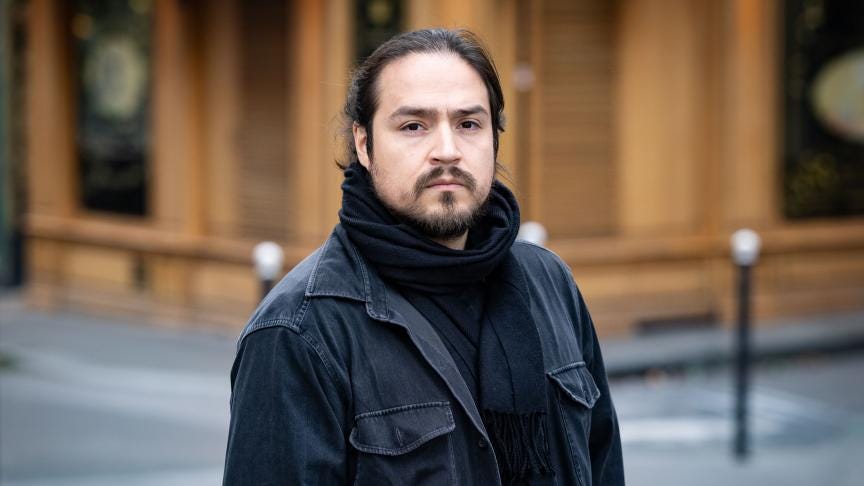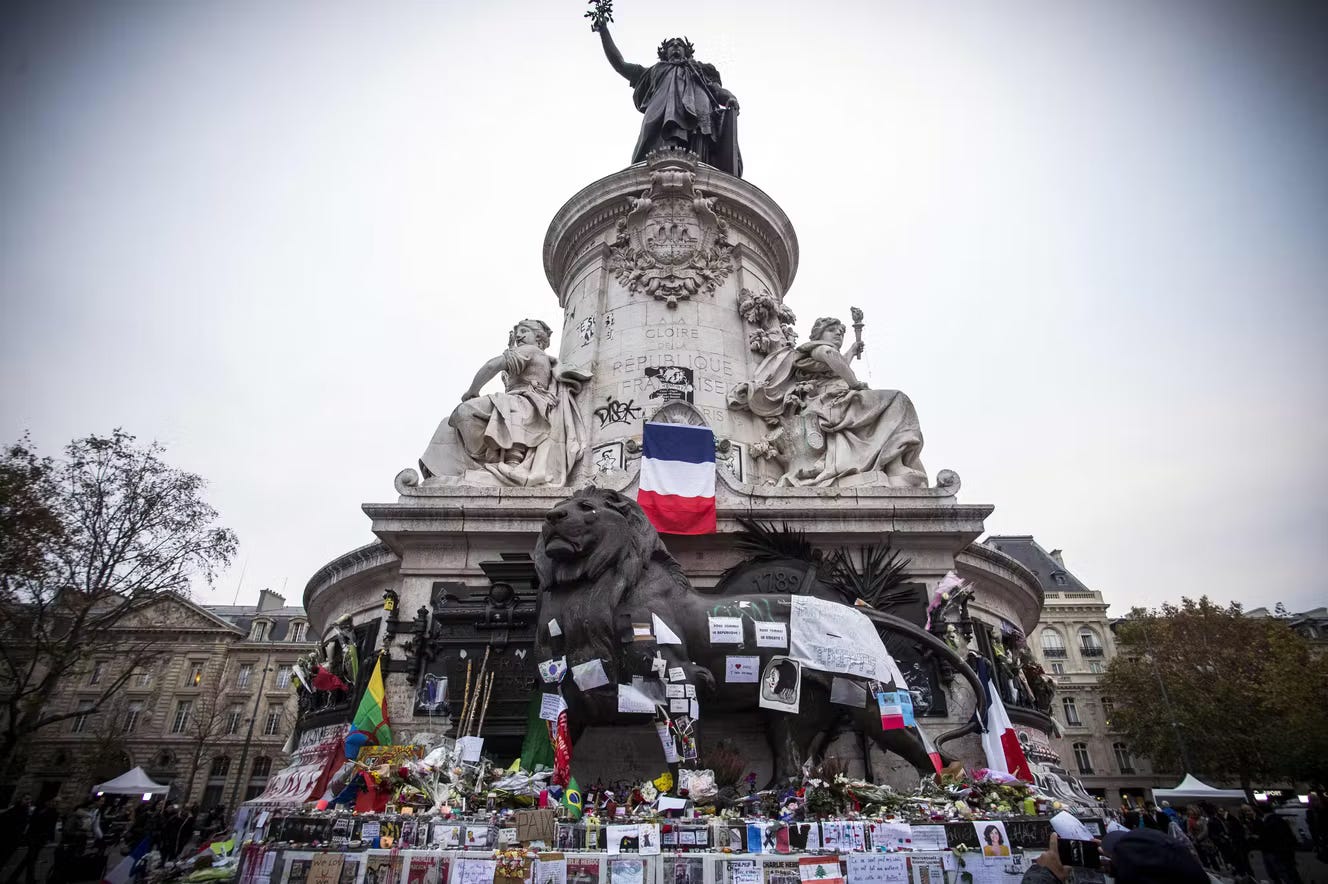Remembrance: the November 13 Paris Attacks
And how one survivor has rebuilt his life.
The last time I wrote about feeling adrift in light of the approaching anniversary was in 2023. It was eight years on from the coordinated terrorist attacks in Paris on November 13 and ten months after the Charlie Hebdo attacks, and I felt more fragile that year than others. Distraction from the fallout from the U.S. Presidential election saw last year’s memorial come and go without the mourning the moment is owed but this year is different. It’s been ten years since something cracked in me, and so many others, and may never be repaired.
A decade is significant; it’s a milestone and an idea of time sufficient for some to have moved on, troubled by the occasional wave of melancholy, while others will have struggled to put the pieces of their lives back together, if they managed to do so at all.
David Fritz Goeppinger, a French-Chilean photographer I met earlier this year at an event he was photographing, was 23 years-old when he was taken hostage in a narrow corridor along with 10 other people by two of the three terrorists who attacked the Bataclan concert venue. For two and a half hours, they served as the terrorists’s human shields, forced in front of the windows overlooking the Passage Saint-Pierre-Amelot. As they were held and tormented, they could hear the third attacker shooting down concert goers in the mosh pit. David oscillated between a sliver of hope that the French police’s Research and Intervention Brigade (BRI) would rescue them and certainty that this was how his life would end. The terrorists were later killed in the BRI’s assault in front of the hostages at 00:18 a.m, which I could hear from my window. David and those ten strangers, connected forever, were rescued.
At the time of the concert, he was working in Paris as a barman and had put aside his passion for photography. After surviving, he found the setting of the bar too reminiscent of the attack—the music, the crowd, the alcohol, the party—and constantly triggered post-traumatic stress responses. In his new book Il fallait vivre, he speaks of the loss of that part of his life and accepting the end of a carefree, youthful innocence. Photography helped him rebuild, he says. He writes of the darkness that lingers years on and resurfaced, in a different way, during the ten-month trial in 2021 where he and other survivors testified in front of the last remaining living accused. “I came dressed in what could have been my last outfit, I kept it on,” he told the court. The book wasn’t meant to retrace all of the events, horror by horror, of November 13th, says David, nor to document what it felt like to be a hostage.
“I wrote it to offer a perspective, an insight into what the justice system can do to a victim. Through it, I hope to offer a proposal, an opening: that of being able to be a victim in a way other than through the grief we feel and that the world assigns us.”
Ten years since the trauma of that November evening and the months of grief it set off for the entire nation. A French-Belgian production recently released the series Des Vivants, a fictionalized look at life after the attacks through seven characters inspired by the real surviving hostages, including David. He doesn’t make an appearance on screen but he did put together a photography series from the filming, which you can scroll through here.
I wish I were strong enough to watch it but I haven’t been able to watch anything, documentary or otherwise, about that night. I’ve wept watching short interviews on the news with survivors and the families who lost their loved ones that night. I can still close my eyes and see an intern from my old office from 12 years ago who, I learned in the week following the attacks, was killed at the concert.
I’m touched by David’s strength and his commitment to a group supporting victims of terrorism. My experience that night, which I was asked by Quartz to write about on November 14 that year, pales in comparison to what survivors like him face daily. And yet, I can recall every smell, sound, and feeling from that night in perfect detail. I remember my hair, still dripping wet from my shower, and the frayed bathrobe I was wearing as I scrolled Twitter to check if anyone was reporting on the source of the relentless sirens on the avenue beneath my window. I remember frantically calling and texting my husband to alert him and getting no response. I remember the panic on his face when he finally walked through the door and my hyperventilating gasp when I threw my arms around him. I remember the haunting sky the following morning and the ache that remained lodged in my gut for months more. I still flinch when I see the vigipirate brigade patrolling with their giant rifles in train stations and around monuments.
Each of us carries the pain of that time differently, and so does Paris. The city has gotten stronger, more resilient, and even more committed to the joie de vivre that came under attack. And perhaps that’s what David’s strength offers us, as a reminder: this resilience isn’t about forgetting or squashing the memories but continuing to live fully and defiantly.
Thanks for reading! If you think a friend would enjoy The New Paris Dispatch or this series, gift subscriptions are available here | Order copies of my books The New Paris, The New Parisienne, and The Eater Guide to Paris.




Lindsay, this was so moving - sending love ❤️
Ten years on, we all remember when our Parisian way of living was shaken, and how it strengthened in the aftermath. Thank you, Lindsey, for this piece.